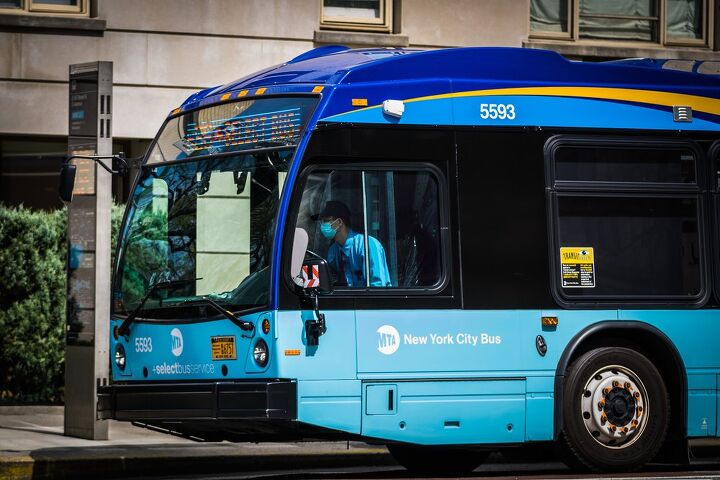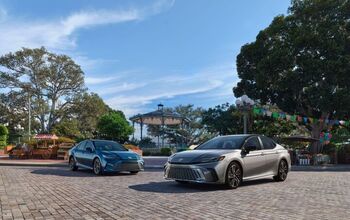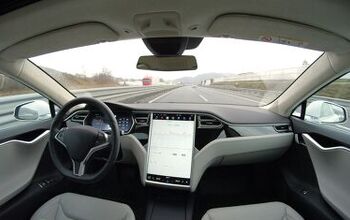U.S. Issuing $1.66 Billion in Grants for Zero-Emission Buses

On Tuesday, The Department of Transportation announced that it was prepping $1.66 billion in grants so that cities can purchase zero-emission buses. Headed by the Federal Transit Administration, the program is aimed at getting 1,800 new vehicles into metropolitan areas – which the White House claimed would effectively double the number of electrified buses currently in operation. Though a portion of the funds will be earmarked for buying up public transportation reliant on hybrid-electric, natural gas, and diesel powertrains.
The money stems from the $1.2 trillion infrastructure bill Joe Biden signed in November of 2021 – which included numerous provisions that certain investments prioritize concepts like equity, public safety, and the always popular “climate change mitigation.” All are said to come together here since the money is supposed to go primarily to cities that saw public transit use plummet during the government-endorsed lockdowns witnessed throughout the pandemic.
"These grants are going to be used in every corner of this country," White House infrastructure coordinator Mitch Landrieu was quoted as saying by Reuters.
The New York Metropolitan Transportation Authority (MTA), the nation’s largest and most used public transit system, will receive $116 million to buy about 230 electric buses to replace older diesel ones. This will reportedly make roughly 4 percent of its 5,800-bus fleet electric.
Meanwhile, the Los Angeles County Metropolitan Transportation Authority will receive $104.1 million to procure roughly 160 electric buses. Those will be replacing compressed natural gas (CNG) buses. Massachusetts Bay Transportation Authority will be issued $116 million in grants to swap out 85 diesel people movers for new electric models. Most other municipalities will see far less financial help, sometimes just enough for a single bus. Though several cities are getting special grants to upgrade bus terminals or maintenance facilities. The same goes for select tribal reservations with little-to-no transit infrastructure to speak of.
But most places that applied for the grants will receive nothing. The Federal Transit Administration reported that it had received over 500 grant applications totaling nearly $8 billion. However, only 150 of those were approved.
That could change in the future, as the infrastructure law provides $5.5 billion over five years for federal bus grants. That’s six times the funding witnessed prior to the Biden administration’s sweeping infrastructure bill and allocates $2 billion for maintaining/upgrading older buses, bus stations, and maintenance facilities. But it’s still going to be years before any major city is running EV-dominated fleets.
[Image: Steve Sanchez Photos/Shutterstock]
Become a TTAC insider. Get the latest news, features, TTAC takes, and everything else that gets to the truth about cars first by subscribing to our newsletter.

A staunch consumer advocate tracking industry trends and regulation. Before joining TTAC, Matt spent a decade working for marketing and research firms based in NYC. Clients included several of the world’s largest automakers, global tire brands, and aftermarket part suppliers. Dissatisfied with the corporate world and resentful of having to wear suits everyday, he pivoted to writing about cars. Since then, that man has become an ardent supporter of the right-to-repair movement, been interviewed on the auto industry by national radio broadcasts, driven more rental cars than anyone ever should, participated in amateur rallying events, and received the requisite minimum training as sanctioned by the SCCA. Handy with a wrench, Matt grew up surrounded by Detroit auto workers and managed to get a pizza delivery job before he was legally eligible. He later found himself driving box trucks through Manhattan, guaranteeing future sympathy for actual truckers. He continues to conduct research pertaining to the automotive sector as an independent contractor and has since moved back to his native Michigan, closer to where the cars are born. A contrarian, Matt claims to prefer understeer — stating that front and all-wheel drive vehicles cater best to his driving style.
More by Matt Posky
Latest Car Reviews
Read moreLatest Product Reviews
Read moreRecent Comments
- Corey Lewis It's not competitive against others in the class, as my review discussed. https://www.thetruthaboutcars.com/cars/chevrolet/rental-review-the-2023-chevrolet-malibu-last-domestic-midsize-standing-44502760
- Turbo Is Black Magic My wife had one of these back in 06, did a ton of work to it… supercharger, full exhaust, full suspension.. it was a blast to drive even though it was still hilariously slow. Great for drive in nights, open the hatch fold the seats flat and just relax.Also this thing is a great example of how far we have come in crash safety even since just 2005… go look at these old crash tests now and I cringe at what a modern electric tank would do to this thing.
- MaintenanceCosts Whenever the topic of the xB comes up…Me: "The style is fun. The combination of the box shape and the aggressive detailing is very JDM."Wife: "Those are ghetto."Me: "They're smaller than a Corolla outside and have the space of a RAV4 inside."Wife: "Those are ghetto."Me: "They're kind of fun to drive with a stick."Wife: "Those are ghetto."It's one of a few cars (including its fellow box, the Ford Flex) on which we will just never see eye to eye.
- Oberkanone The alternative is a more expensive SUV. Yes, it will be missed.
- Ajla I did like this one.


































Comments
Join the conversation
In NY in order to run a marijuana business you have to show your previous criminal record as a drug dealer or user. Because rewarding criminal behavior is the best way to reduce crime.
Nope, and NY isn't the only state to have this policy. It goes well with their no bail policy. Really cleaning up the streets.